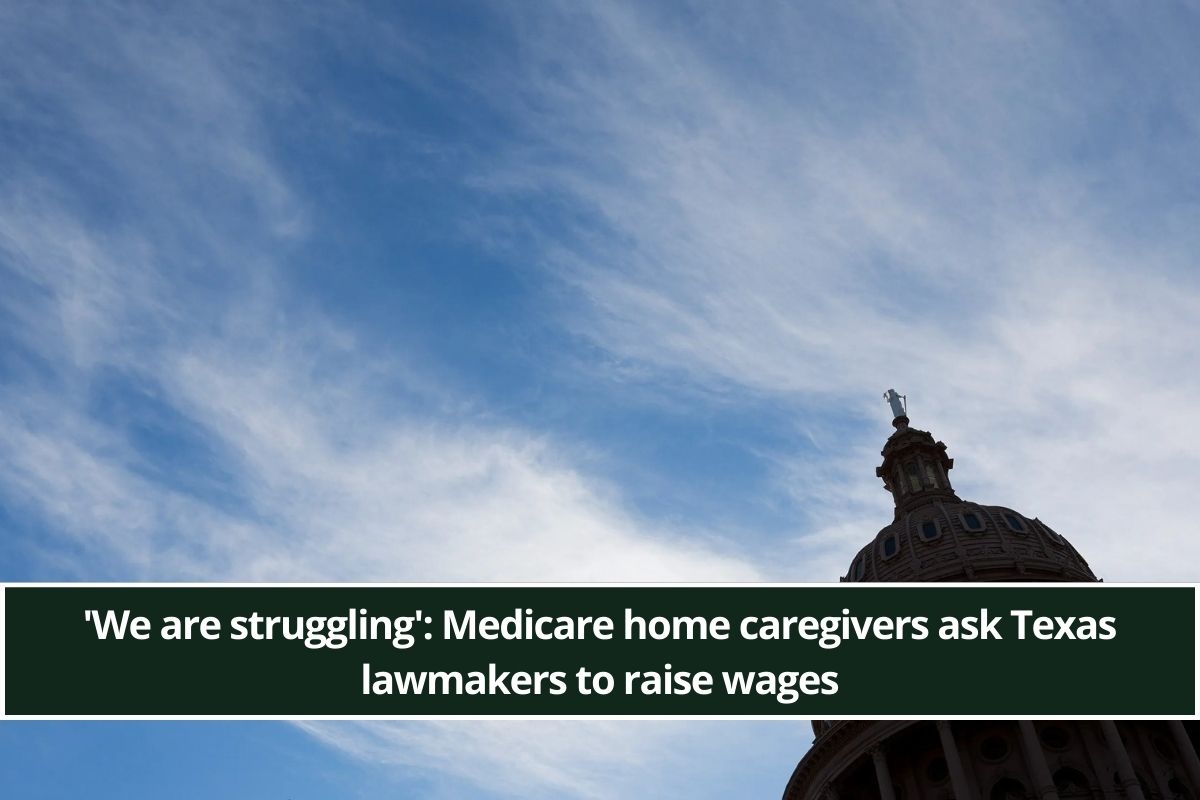Every morning, Thomas Greenwell goes through his daily routine twice—once for himself and once for his client, Edgar. As a community attendant in Pearland, Texas, Greenwell assists Edgar with every basic task, from brushing teeth to getting dressed. However, despite his dedication, he earns only $10.60 per hour, a wage set by the Texas Legislature in 2023.
Greenwell, just 19 years old, has been hoping to move out of his family home, but his wages make that nearly impossible. He explained that rent alone for a small apartment in Pearland would consume both his monthly paychecks, leaving nothing for food, gas, or utilities.
Push for Higher Wages in the Texas Legislature
The Texas Legislature is set to revisit wages for community-based caregivers during its spring session. Advocates argue that the current wages are unsustainable, driving workers away from the profession and creating care shortages.
State Representative Suleman Lalani, a physician and Democratic legislator from Sugar Land, has introduced a bill to raise the minimum wage for personal attendants under Medicaid and other Texas Health and Human Services programs to $15 per hour.
“We owe care providers the opportunity to have a good quality of life that allows them to put food on the table,” Lalani said.
He pointed out that fast-food workers and grocery store employees often earn more than caregivers who provide essential services to vulnerable communities.
The Impact of Low Wages on the Industry
Low wages have led to worker shortages, forcing caregivers to work excessive hours, sometimes 60-70 hours per week. The Texas Senate’s latest budget proposal seeks to raise wages for community attendants to $12 per hour, but this is still far below the $20 per hour minimum that advocacy groups like the Personal Attendant Coalition of Texas (PACT) are fighting for.
The budget bill includes a 1.9% increase in state healthcare spending, allocating $756 million specifically to boost community attendant wages. However, advocates say this is not enough to fix the issue.
Who Are Community Attendants?
According to Texas Health and Human Services Commission and the Paraprofessional Healthcare Institute, the median age for community attendants in Texas is 50 years old. Additionally:
- 88% of Medicaid home and community-based caregivers are women
- 79% are people of color
- 35% rely on government assistance to make ends meet
Cathy Cranston, a community attendant and organizer with PACT, emphasized the need for better pay.
“As attendants, we are an extension of the person we assist. But we are also struggling.”
Many caregivers qualify for food stamps and housing assistance because their wages do not cover basic living expenses.
Why Higher Wages Matter
Jeff Miller, a representative from Disability Rights Texas, explained that low wages and lack of benefits are making it harder to attract and retain skilled caregivers. This directly affects the quality of care that people with disabilities receive.
In 2023, lawmakers raised the base wage from $8.11 to $10.60 per hour for caregivers but simultaneously increased wages for state hospital employees to $17.50 per hour. This has created an uneven playing field, making it harder for community-based providers to compete for workers.
“Provider agencies with the $10.60 wage floor have about a 30% vacancy rate,” Miller said. “Retention is a huge problem, and it directly impacts people with disabilities.”
The Reality for Those Who Need Care
Nancy Crowther, an advocate from ADAPT of Texas, relies on daily care from community attendants. She has first-hand experience with the challenges of finding and keeping reliable caregivers.
“It is very challenging to find someone who will stay in the position at $10.60 per hour. When wages are suddenly $16 at Dairy Queen, you will be dropped like a hot rock and left scrambling to find care.”
Advocates Continue the Fight
Despite the ongoing challenges, advocates and caregivers are determined to keep pushing for fair wages.
“For many of us who have been attendants for decades, it is in our blood to do this work,” Cranston said. “We deserve to be compensated fairly.”
With Texas lawmakers set to debate wages again this spring, caregivers are hopeful that their voices will finally be heard, leading to livable wages and better working conditions for those who dedicate their lives to helping others.







